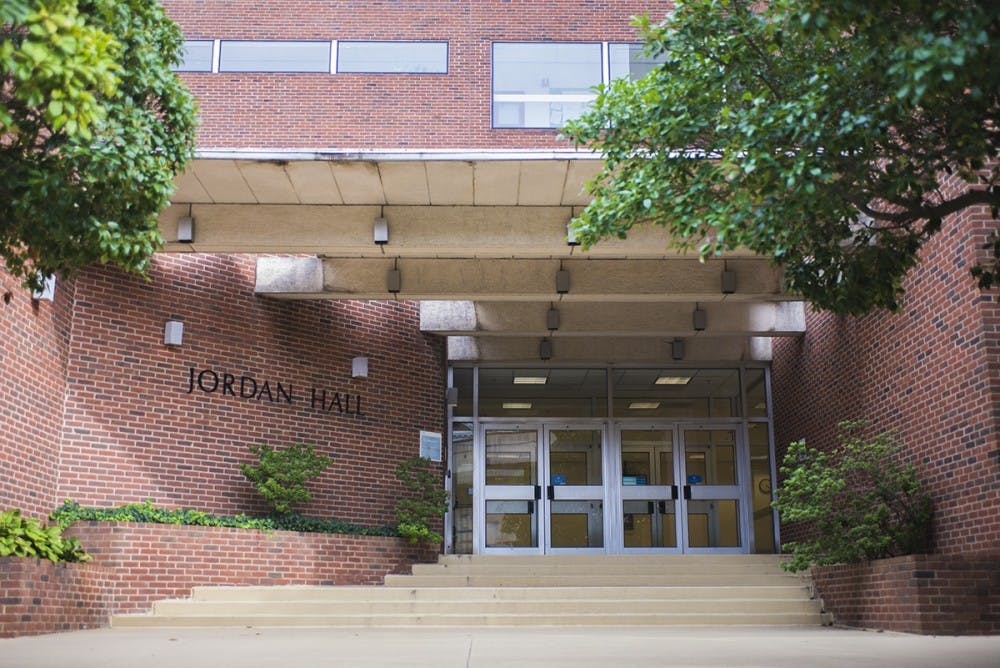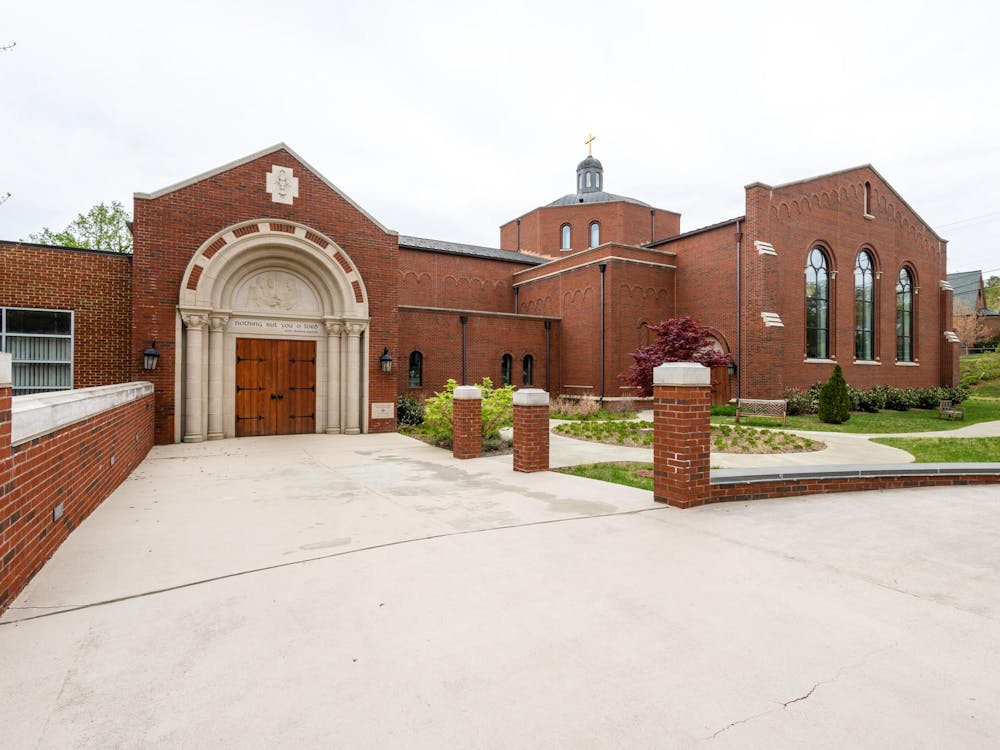The Board of Visitors approved the proposed renaming of Jordan Hall to Pinn Hall in its meeting Thursday, removing the building’s previous connection to a eugenicist. The building — which serves as a medical research facility — has been renamed for Vivian Pinn, who graduated from the School of Medicine in 1967.
Pinn was the only female and only African-American member of her 1967 class and has since received numerous honors for her accomplishments as a physician.
“[She] has had a distinguished career as a physician, a researcher and a scholar,” University Health System Public Information Officer Eric Swensen said in an email statement. “Education, research and patient care are the three pillars of an academic health system like U.Va., so Dr. Pinn is an excellent representative [of] what we hope our students and faculty will achieve.”
Being at the University in the 1960s — a time when women were still not accepted as undergraduate students — and being the only woman or minority in her medical school class brought a number of challenges in addition to the academic rigor, Pinn said.
“But rather than focus on the negatives, I was very grateful for classmates and faculty who were so supportive and so encouraging during my years there, and even afterwards,” Pinn said in an email statement.
The building, located adjacent to the University’s main inpatient hospital, is currently under renovation, which prompted the proposal to rename the facility.
The facility was named Jordan Hall in 1972 after Harvey E. Jordan, a former dean of the School of Medicine and, controversially, a prominent eugenicist in the early 1900s.
Eugenics is the pseudoscience which claims the human race can be improved through controlled breeding. The University had a strong eugenics program and several renowned eugenicists — including Jordan — in the first half of the 20th century. This was mainly due to the push by then-President Edwin Alderman to increase scientific work at the University, and eugenics was a popular field of research and teaching.
Although eugenics has long been discontinued at the University, remnants of the area of study still remain, including Jordan Hall. By changing the name to Pinn Hall, Swensen said the University is looking to showcase the attributes it hopes to instill in its students as it enters its third century.
“We’re in the process of renovating Jordan Hall, which serves as one of our key research facilities, [and] with that work ongoing — and as we prepare to celebrate U.Va.’s bicentennial — we believe it is a good time to create a new reflection of our research and education missions,” Swensen said.
The proposal grew out of integrated space planning for University Health Systems facilities beginning in January 2016, Swensen said.
Swensen said Pinn was the consensus choice of a group of School of Medicine leaders who considered options for renaming the facility.
During her academic career, Pinn served at both Tufts Medical School and Howard University College of Medicine, where she became the first African-American woman to chair Howard’s Department of Pathology, Swensen said. She also served as the first director of the National Institute of Health’s Office of Research on Women’s Health.
“I have honestly and proudly stated that the medical education that I received at U.Va. gave me the foundation that allowed me to succeed in the pursuits of the profession of medicine and even as a federal policy maker,” Pinn said. “Even some of the negative experiences were also formative in that I resolved to be a better mentor or teacher or administrator than some I experienced.”
Pinn said she was unofficially told a few months ago that she was being considered for the renaming and expressed her gratitude for the honor.
“I am just stunned and actually feeling extremely humbled by such an honor by the institution that gave me my foundation and education for my medical and professional career,” Pinn said. “I am very grateful and appreciative that the University believes me worthy.”
Correction: This article previously incorrectly stated that the University had a strong eugenics program in the 19th century







